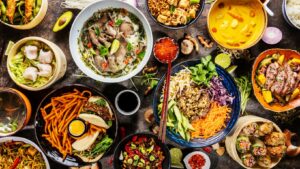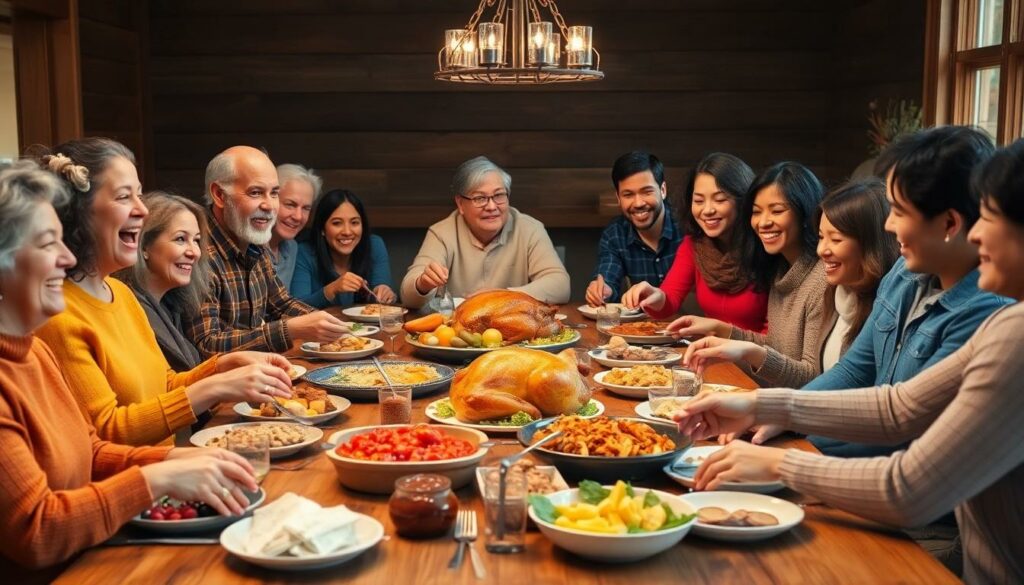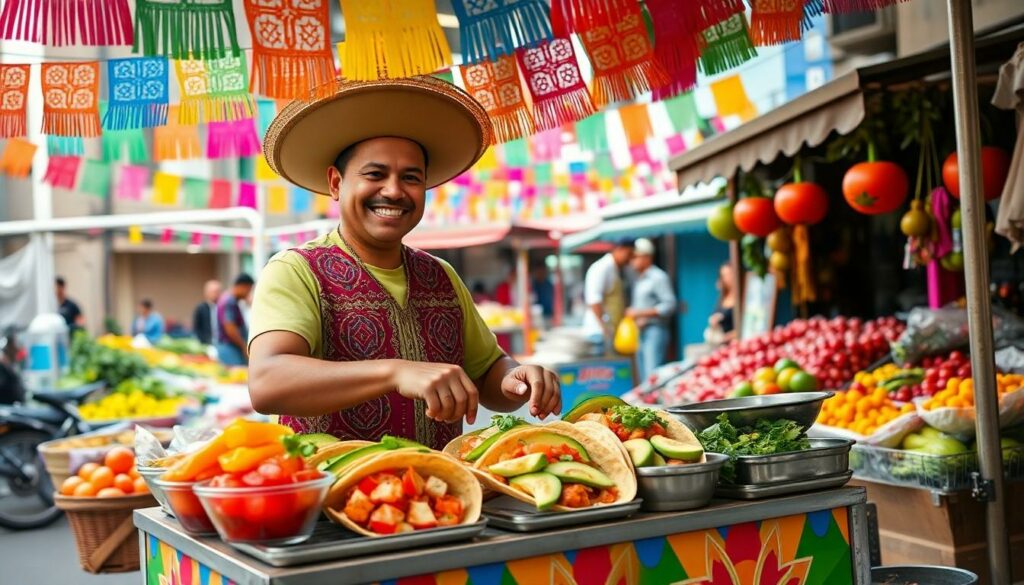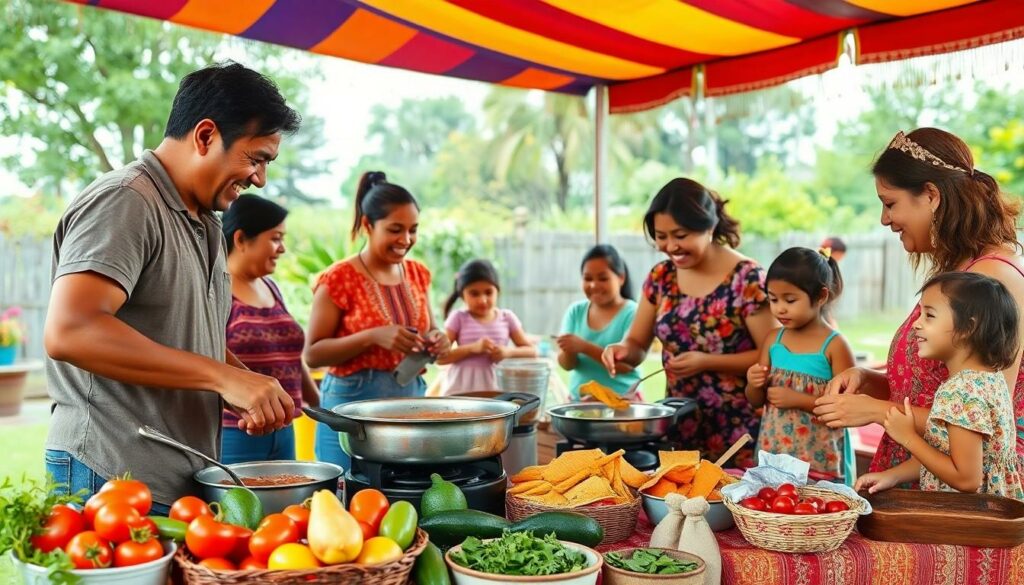Food isn’t just fuel; it’s the heartbeat of culture. From spicy street tacos to delicate sushi rolls, every bite tells a story that connects people across generations and geographies. It’s the universal language that bridges gaps, sparks conversations, and sometimes, ignites passionate debates over who makes the best pizza.
Why Is Food Important to Culture
Food plays a crucial role in shaping cultural identities and traditions across the globe. It reflects people’s shared histories and interactions.
Food as a Cultural Identity
 Cuisines often serve as markers of cultural identity. Dishes like sushi in Japan or barbecue in the Southern United States highlight distinct regional practices and values. Local ingredients and cooking techniques are passed down through generations, preserving heritage. People connect with their culture through recipes that evoke memories of family gatherings. Shared meals can foster a sense of belonging, as they unite individuals in celebration of their roots. Each culture’s unique culinary offerings contribute to its vibrant tapestry.
Cuisines often serve as markers of cultural identity. Dishes like sushi in Japan or barbecue in the Southern United States highlight distinct regional practices and values. Local ingredients and cooking techniques are passed down through generations, preserving heritage. People connect with their culture through recipes that evoke memories of family gatherings. Shared meals can foster a sense of belonging, as they unite individuals in celebration of their roots. Each culture’s unique culinary offerings contribute to its vibrant tapestry.
Traditions and Rituals Involving Food
Food often plays a central role in various traditions and rituals. Celebrations, such as Thanksgiving in the U.S. or Diwali in India, revolve around specific dishes. These meals symbolize both abundance and gratitude. Daily rituals, like communal breakfasts or family dinners, reinforce relationships and social bonds. In many cultures, food marks significant life events, such as weddings or funerals, emphasizing its importance in emotional expression. Traditional cooking methods may also be part of ceremonial practices, adding layers of meaning to the shared dining experience.
The Role of Food in Social Interactions
Food plays a crucial role in fostering relationships and creating memorable experiences. Shared meals often mark significant moments in life, bringing people together in meaningful ways.
Family Gatherings and Food
Family gatherings often center around food, providing a reason for loved ones to come together. Traditional dishes, like roasted turkey for Thanksgiving, evoke nostalgia and unite families. During holidays, preparing meals as a collective encourages cooperation and strengthens familial bonds. Recipes passed down through generations keep cultural traditions alive, ensuring that family identities remain intact. These culinary celebrations form the backdrop for shared stories, laughter, and connection. Ultimately, food acts as a catalyst for togetherness during cherished occasions.
Food as a Means of Connection
Food serves as a bridge between individuals, transcending language barriers and cultural differences. Dining together encourages conversations, enabling people to share experiences and perspectives. In social settings, enjoying a meal enhances relationships, whether through casual brunches or formal dinner parties. Diverse cuisines often prompt discussions about flavors, cooking styles, and culinary heritage, fostering appreciation for different cultures. Moreover, eating together reinforces community ties, highlighting the essential role of food in social gatherings. Through the act of sharing meals, deeper connections emerge, promoting understanding and acceptance among people.
Food and Cultural Exchange
Food acts as a powerful medium for cultural exchange. It fosters connections among people from diverse backgrounds and facilitates shared experiences.
Globalization and Culinary Diversity
Globalization has transformed food culture worldwide. Exposure to international cuisines allows individuals to explore flavors from various cultures. Diverse ingredients and cooking techniques enhance culinary experiences, showcasing the amalgamation of traditions. Street food markets in urban areas offer an array of dishes, such as Indian samosas and Mexican tamales, promoting cross-cultural appreciation. This exchange broadens palates and encourages culinary creativity. It also highlights the ways food shapes identities and connects communities.
The Influence of Travel on Food Culture
Travel significantly influences food culture by exposing individuals to unique gastronomies. Tourists often explore local delicacies, such as Japanese ramen in Tokyo or Italian gelato in Florence. Experiences with authentic dishes create lasting memories and drive the desire to replicate these meals at home. Visitors often bring back recipes and cooking techniques, enriching their home cuisines. Additionally, travel fosters curiosity about ingredient sourcing and preparation methods. This knowledge promotes understanding and appreciation of diverse cultures while encouraging a rich, culinary tapestry that reflects shared human experiences.
Challenges to Cultural Food Practices
Food practices face numerous challenges in today’s global landscape. Rapid modernization and globalization shift traditional food practices, often leading to the loss of cultural heritage. Urbanization changes eating habits, favoring convenience over authenticity. Fast-food chains proliferate worldwide, overshadowing local cuisines and creating a homogenized food culture.
Modernization and Its Impact
Modernization alters food production, distribution, and consumption. Technology streamlines cooking processes, but it may dilute cultural significance. For instance, automated food preparation equipment can replace traditional methods, risking the loss of unique flavors and techniques. Additionally, the accessibility of international foods reduces the prominence of local dishes. As people increasingly gravitate toward convenience, traditional recipes fade from daily practice, impacting social gatherings centered around specialized meals.
Preserving Traditional Foods
 Preserving traditional foods becomes essential in maintaining cultural identity. Communities worldwide combat modernization by reviving traditional cooking methods. Initiatives such as food festivals and cooking classes showcase local cuisines, helping to educate younger generations. Families often pass down cherished recipes, creating a tangible connection to their heritage. Organizations can also promote the importance of traditional ingredients by advocating for sustainable farming practices. By focusing on preserving these culinary traditions, cultures can celebrate their unique identities while navigating the challenges of a changing world.
Preserving traditional foods becomes essential in maintaining cultural identity. Communities worldwide combat modernization by reviving traditional cooking methods. Initiatives such as food festivals and cooking classes showcase local cuisines, helping to educate younger generations. Families often pass down cherished recipes, creating a tangible connection to their heritage. Organizations can also promote the importance of traditional ingredients by advocating for sustainable farming practices. By focusing on preserving these culinary traditions, cultures can celebrate their unique identities while navigating the challenges of a changing world.
Creating Lasting Bonds
Food’s significance in culture cannot be overstated. It acts as a powerful connector of people and traditions, weaving together shared histories and experiences. Through meals, individuals engage in meaningful interactions that transcend language and cultural barriers.
As communities face the challenges of modernization and globalization, the preservation of culinary traditions becomes vital. By embracing and celebrating diverse food practices, societies can maintain their unique identities while fostering understanding and appreciation among different cultures.
Ultimately, food is more than sustenance; it’s a reflection of who we are and where we come from, enriching lives and creating lasting bonds.


